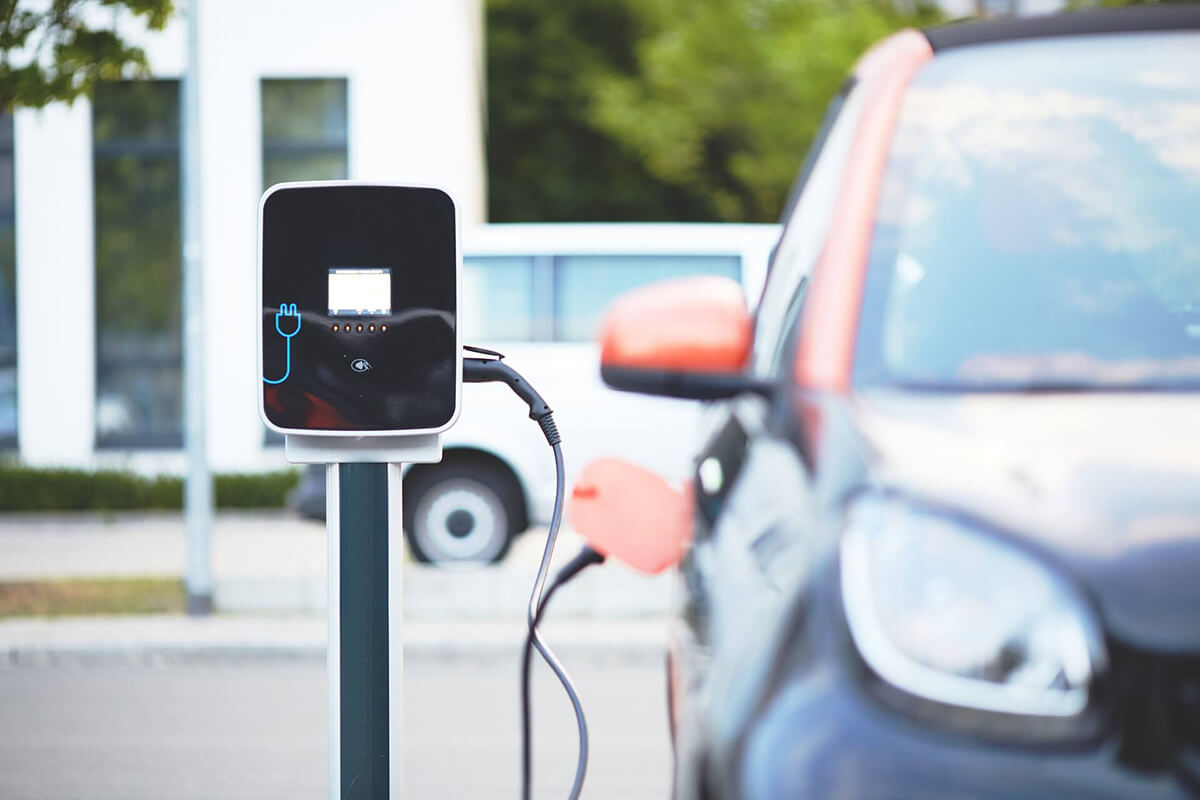The popularity of electric vehicles has grown exponentially over the last several years. Something that once seemed like it was an impossibility or only achievable in science fiction movies is now a reality! While gas-powered cars are not going anywhere any time soon, the surge in ownership of electric vehicles cannot be ignored. While gas-powered cars have to be filled up at a gas station, electric vehicles can be charged at a charging station OR at home!

A car charger outlet can be installed in your home to charge your car overnight – a car charger will be like plugging into a wall outlet directly to your car. There are also charging stations in many public places for charging on the go as well! They can be found at public charging stations, malls, amusement parks. You name it!
But what would be cheaper? Charging your car at home, or at a public charging station?
Like many things in life, the answer to this question is not always easy to answer. Several different factors have to be taken into account when answering this question. We want to take some time to give you as much information as we can about this, so you can make an informed decision if you are in the market for an electric vehicle.
Charging Your Electric Vehicle at Home
Having the ability to charge your electric vehicle at home is something that can look very different depending on your model of car or the level of convenience you are looking for. Depending on the type of electric vehicle you have, it may be charged using a basic 110-volt line that plugs in using a standard three-prong wall outlet. This is commonly called “Level 1 Charging”. This would not require any dedicated charging station, but is also the slowest way of charging an electric vehicle. The batteries that are in electric vehicles are massive and with this method, it could take between eight and twenty-four hours to charge an electric vehicle. If you do not drive very far or very often, this might not be an issue for you.
If you are looking for an option that is significantly faster and more convenient, you will want to make sure your garage has a dedicated 240-volt line. This is commonly called “Level 2 Charging” and can cut your charge time in half in certain cases. A battery that is completely drained can be charged in four hours with Level 2 Charging. This would also require an external charging station and may not be compatible with every electric vehicle. Consult your vehicle manufacture to know what option is best for your specific make and model.
On average, homes in the United States pay approximately twelve cents per kilowatt-hour. This can vary from state to state and from one electricity supplier to another. The average driver in the United States drives approximately five hundred and fifty miles per month. Lastly, the average electric vehicle will use approximately one hundred and eighty kilowatt-hours for that distance. So, on average, it would cost twenty-one dollars and sixty cents per month to charge an electric vehicle.
The most common types of chargers you will find at public charging stations are Level 2 charging stations. There are also newer Level 3 charging stations that can charge electric vehicles more quickly at a higher cost. The cost of charging at a public charging station will vary depending on what state you are in, what provider you are using, and what level of charging you are using. Blink is a company that has over three thousand charging stations across the country. Charging ranges at Level 2 from thirty-nine cents to seventy-nine cents per kilowatt-hour. Level 3 charging can range from forty-nine cents to sixty-nine cents per kilowatt-hour. Using our formula from earlier, that would mean it would cost between seventy dollars and twenty cents, to one hundred forty-two dollars and twenty cents at a Level 2 public charging station. A Level 3 charging station would cost eighty-eight dollars and twenty cents to one hundred and twenty-four dollars and twenty cents.
As you can see, there is a significant advantage and massive savings to charging your electric vehicle at home versus a public charging station. There may obviously be times where you need to use a public charging station, but if you plan things out and are smart about it, you can keep those times to a minimum.
We hope that this information has been useful and helpful if you have been thinking about taking the plunge and buying an electric car. Denny’s Electric Service is proud to be approved to install Tesla Charging Stations for residential and commercial use.
We would love to speak with you about your potential need for charging stations at your home or business! Contact us today to see how we can help!

